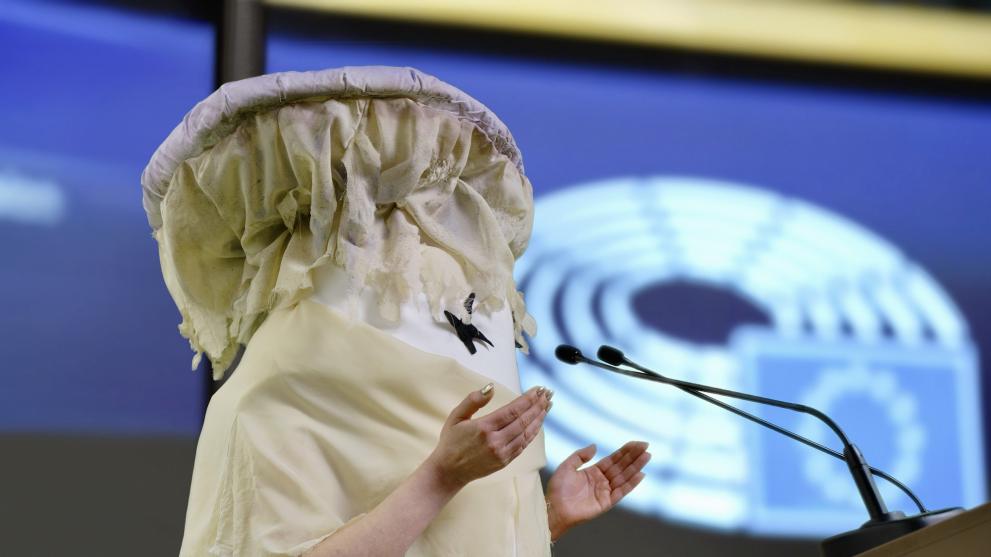
Abstract:
Is it possible for humans, to envision a politics that transcends the human domain? Within Politics in Disguise, the conventional image of a speaking politician is transformed to embody a mushroom that, through a complex process of translation, delivers a speech that challenges our traditional understanding of governance. As a member of the fungi kingdom, it asserts its capability to represent not only animals but also plants, and even unicellular organisms, more effectively than Homo sapiens, an ape-derived species, is able to.
There is a certain urgency in its rhetoric that feels familiar, yet it addresses a broader audience than just humans. It speaks not solely on our behalf but includes us in a more comprehensive, inclusive representation. The audience, which includes humans, appears to be multispecies, yet remains engaged. The human perspective is juxtaposed with, or perhaps complemented by, a non-human viewpoint.
1-channel Video, 3-channel audio, ca. 08:30 min
Full essay coming soon!!
Credits:
Claus Schöning | Julian Keimer
Related links:
- Residency Project: https://science-art-society.ec.europa.eu/politics-disguise
- Presentation of Residency @ JRC: https://science-art-society.ec.europa.eu/sites/default/files/video-thumbnails/2023-06/politics%20-%20Large%20540p.mp4
